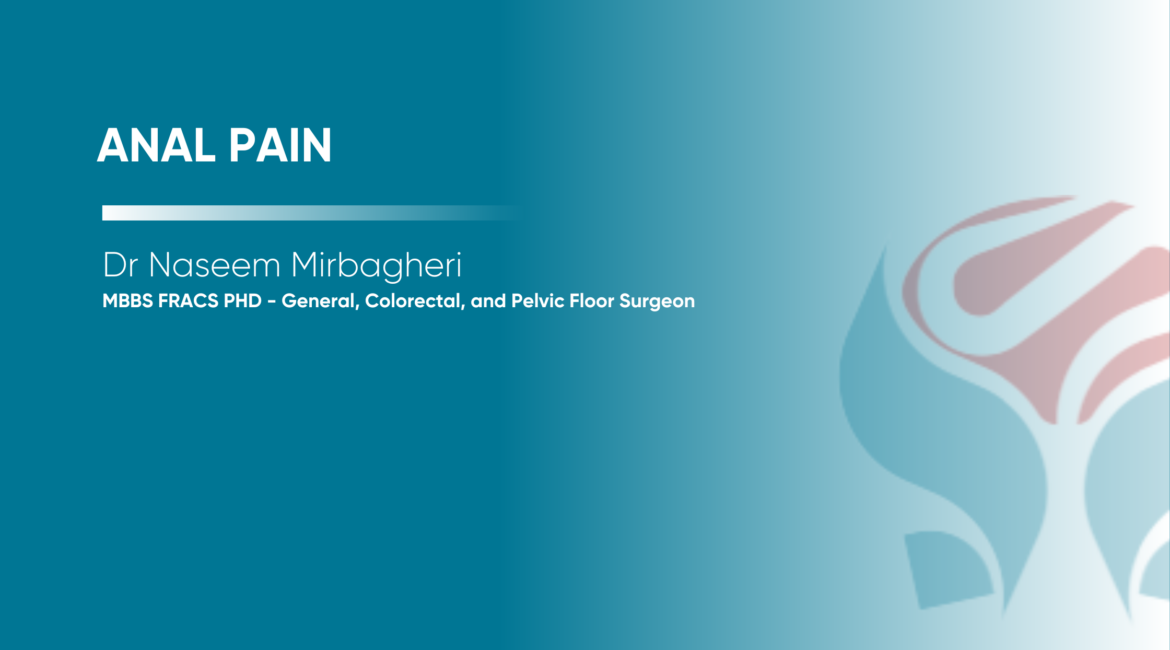
Causes and Management
A day does not go by where I don’t see a patient in my practice with anal pain! Any pain is distressing but a ‘pain in the butt’ goes beyond just the physical part, it can be embarrassing, can affect self-confidence and interfere with bowel action.
The pain associated with the anus is usually caused by two mechanisms:
1: pain directly related to an injury in the anus e.g. from a cut, feels like a burn or sharp pain, this usually lasts for less than a minute
2. Secondary pain which is due to anal spasm , this pain can be throbbing and can last for few hours
Three most common causes of anal pain are:
- Anal fissure
- Thrombosed external haemorrhoid
- Perianal abscess
Less common causes are prolapsing internal haemorrhoids, anal fistula, anal ulcers etc….
What is an anal fissure? A fissure is a breach in the integrity of the anal mucosa , simply a ‘cut’ or ‘graze’ in the inner lining of the anus.
What is thrombosed external haemorrhoid ? This is simply a rupture in the vessels underlying the skin around the bottom/anus, anything that increased the pressure in the circulation can rupture a capillary- straining/coughing/pregnancy etc
What is a perianal abscess ? This is a collection of pus around your anus caused by possibly ‘blocked anal gland’ or an anal fistula.
How can you tell the difference ? Anal fissure presents mainly with pain and bleeding during bowel motion, pain can last for few hours after you open you bowel. Thrombosed haemorrhoids presents as a sudden constant pain associated with a lump that lasts all day making it difficult to sit or walk. An abscess presents with gradual pain which worsens with time associated with a lump.
How can you manage ? Anal fissure: usually managed with high fibre diet, laxatives and a topical cream to relax your anal muscles (prescribed by your doctor).
Thrombosed haemorrhoid: usually pain killers, laxative and salt bath, in almost all patients pain improves by day 3 and disappears by day 10. You may be left with a residual skin tag.
Perianal abscess: this will usually need a formal drainage in a hospital.
Please see your GP if your anal pain does not improve within 1-3 days, accurate diagnosis is essential as the treatment is so different for every condition.

